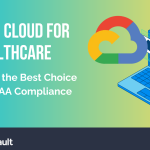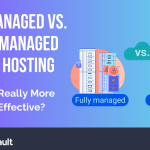
Think Your Healthcare Website is HIPAA-Compliant? These 5 Tests Will Tell You
Introduction: The Hidden Risk Behind a Beautiful Website
Over the past several years, HIPAA Vault has worked closely with hospitals, private practices, and healthcare SaaS providers to identify and remediate security vulnerabilities—many of which begin at the website level. In our experience, most healthcare organizations are unaware that their public-facing websites may be collecting and transmitting protected health information (PHI) in ways that do not meet HIPAA standards.
At first glance, a healthcare website might appear professionally built—complete with sleek design, intuitive navigation, and informative content. However, the appearance of a website is no guarantee of compliance. If you’re unsure about your site’s standing, these five critical areas will help you assess whether you’re truly protecting patient data and meeting HIPAA requirements.
1. Secure Web Forms: A Critical First Checkpoint
Web forms are often the most direct interface between a patient and your organization. Whether it’s a contact form, appointment request, or intake questionnaire, if these forms collect identifiable health information, they fall under HIPAA’s scope.
The problem is, many websites use plugins or third-party form builders that don’t encrypt data properly. In a WordPress environment, for example, a popular form plugin may default to storing form submissions in plain text or transmitting them without encryption. This puts patient data at immediate risk.
For true compliance, all web forms should be served over HTTPS with TLS encryption, and the data must be stored in a HIPAA-compliant environment. Encryption at rest and in transit is not optional—it’s a fundamental safeguard. At HIPAA Vault, we ensure encrypted form submissions are handled and stored in secure containers within our Google Cloud-powered infrastructure, providing full compliance from end to end.
2. Hosting Environments That Do More Than “Host”
Not all hosting is created equal—especially in healthcare. Shared hosting plans or budget services can’t provide the audit logging, access control, or encryption mechanisms required by HIPAA. Unfortunately, many healthcare organizations still rely on these platforms, unaware of the gaps they leave open.
A HIPAA-compliant hosting environment must include technical, administrative, and physical safeguards. That means encrypted backups, 24/7 access monitoring, granular user permissions, intrusion detection systems, and documented policies for disaster recovery and breach response.
HIPAA Vault’s WordPress hosting, for instance, is fully managed on Google Cloud Platform, which is FedRAMP-certified and built to meet the most rigorous federal data security standards. From Kubernetes-based container orchestration to automated patch management, our infrastructure is engineered for both compliance and high performance.
3. Analytics and Cookies: The Silent Compliance Threat
Healthcare organizations often overlook the impact of website analytics and tracking tools on compliance. Popular tools like Google Analytics can capture data points—such as IP addresses, referral paths, or behavior patterns—that become problematic when combined with health-related information. If your site includes condition-specific content or online assessments, this data might be reclassified as PHI.
HIPAA requires that any analytics tool used must either de-identify the data in accordance with recognized standards or be covered by a signed Business Associate Agreement (BAA). Unfortunately, most mainstream analytics tools do not provide BAAs, leaving a significant compliance gap.
The best practice is to either remove these trackers or replace them with HIPAA-compliant alternatives, such as self-hosted analytics platforms that do not transmit data to third parties. HIPAA Vault regularly audits client websites to flag these issues and recommends secure analytics configurations that protect both the user and the organization.
4. Business Associate Agreements: A Non-Negotiable Requirement
Compliance is not just about technology—it’s about relationships. Under HIPAA, any vendor or service provider who might access PHI is considered a Business Associate and must sign a formal Business Associate Agreement (BAA). This includes your website hosting company, developers, form service providers, and even consultants if they have any access to systems handling PHI.
Yet many healthcare organizations either don’t request a BAA from these parties or assume they’re covered when they’re not. This oversight could lead to severe penalties in the event of a breach.
At HIPAA Vault, every client engagement includes a signed BAA that clearly outlines roles, responsibilities, and compliance expectations. It’s a critical component of our service, ensuring that our clients are not left exposed from a legal or operational standpoint.
5. Breach Notification and Recovery: Are You Prepared?
HIPAA mandates not only the protection of PHI but also preparedness in the event of a breach. This includes having a documented incident response plan, clear breach notification procedures, and a system for rapid recovery.
Surprisingly, many healthcare websites—even those for well-established practices—lack a basic plan for responding to a security incident. The assumption that “it won’t happen to us” has led to serious repercussions when breaches inevitably occur.
A sound recovery plan includes regular backups, monitoring for unauthorized access, and procedures for reporting incidents to patients and regulators. HIPAA Vault provides managed detection and response capabilities, with continuous monitoring and under-15-minute incident response times. We don’t just help detect breaches—we guide our clients through recovery, investigation, and reporting, minimizing disruption and maintaining trust.
Conclusion: Your Website Is a Frontline Asset—Treat It That Way
Your healthcare website is more than a marketing tool—it’s a functional part of your patient care workflow. Whether scheduling appointments, collecting health histories, or delivering lab results, your website is often the first point of PHI contact. That makes it a frontline asset in your overall compliance strategy.
Failing one of these five tests doesn’t just mean you’re at risk of penalties—it means your patients’ data may already be vulnerable. But the good news is that compliance is achievable with the right partner.
HIPAA Vault offers fully managed WordPress hosting, encrypted form solutions, secure analytics setups, and a documented compliance process backed by years of experience supporting healthcare organizations. If you’re serious about making your website truly HIPAA-compliant, we’re here to help.
Learn more about our HIPAA-compliant hosting solutions and take the first step toward securing your website today.



